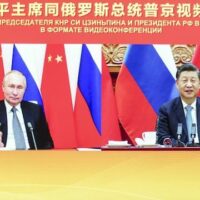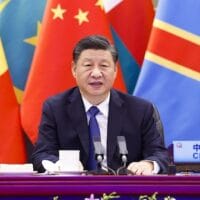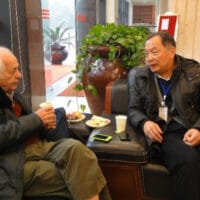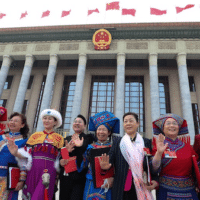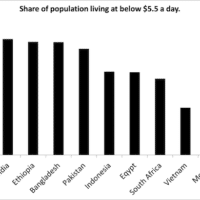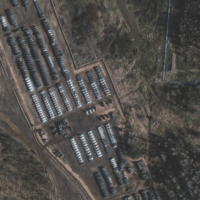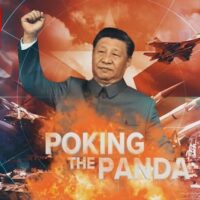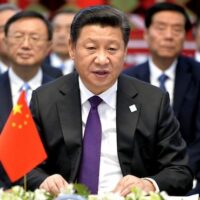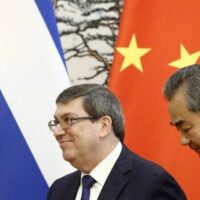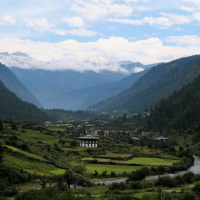-
Year in review: China’s climate goals withstand heat
Chinese policymakers have been rapidly developing new climate policies even as major events have threatened to derail them.
-
China Sends Bolivia 3 Million COVID-19 Vaccines
Bolivia has received three million Sinopharm COVID-19 vaccines from China, the largest delivery of vaccines to arrive in Bolivia from the Asian superpower.
-
Cuba eyes cooperation with China on clean energy
Facing the challenges of an aging energy infrastructure, Cuba is looking to new energy sources with help from the Belt and Road Initiative to strengthen its power production capacity and move away from fossil fuels.
-
A red under every bed? Canada, racial profiling, and the Five Eyes
Amid the wreckage of wars in Iraq and Afghanistan, the United States and its allies have turned their sights on China. University of Victoria professor emeritus and historian John Price examines the rise of the coalition of Anglo settler colonial states of Canada, the United Kingdom, the U.S., Australia, and New Zealand, and how they are today fomenting conflict in the Asia Pacific.
-
Absurd Guardian article declares China world’s only imperialist power
Another cartoonishly ridiculous anti-China propaganda piece has been published in the western mass media, this time by The Guardian, which at this point could arguably be labeled the single most destructive promulgator of empire propaganda in the western world.
-
The two Michaels, Canada’s Kovrig and Spavor, caught red-handed spying against China and North Korea
Western Politicians and Media, However, Made It Seem Like They Were Innocent Victims of China’s Authoritarianism.
-
A Sino-Russian military alliance is gratuitous (as of now)
To apply a western analogy, while the Sino-Russian partnership has great potential to model itself after the European Union, neither Moscow nor Beijing desires an Eurasian NATO to create synergy for it.
-
China-Africa friendship continues to flourish on vaccine, trade, renewable energy
China-Africa friendship is expected to continue to flourish as cooperation is further deepened in various areas after the ongoing 8th Ministerial Conference of the Forum on China-Africa Cooperation (FOCAC) held in Dakar, Senegal.
-
China plays a crucial role supporting progress and sovereignty in Latin America
In the last two decades, economic links between Latin America and the People’s Republic of China have been expanding at a dizzying rate.
-
Tibet railway in focus as China vows change for landlocked Nepal
In May 2017, Nepal joined the BRI with a hope of obtaining long-term benefits through a myriad of projects. The line has already reached Xigaze (or Shigatse) in Tibet. In July 2020 the next secton of line in Tibet from Xigaze to was still in the planning stage, although China had reportedly commenced surveying work.
-
“Ten crises: The political economy of China’s development,” by Wen Tiejun
Wen’s vision is of a China which would be increasingly self-reliant, delinking from the American dominated global capitalism and developing its own key technologies and productive capacities, while at the same time continuing to engage with other emerging economies which share a desire to be free of Western neo-imperial control.
-
From grassroots to lawmaker: a glimpse of China’s ‘whole-process democracy’
The notion of Chinese democracy is not the same as that in the West. The political system in China is more about consensus building within a greater voice rather than the protracted bargaining to arrive at decisions common in the West.
-
Views on China
What is the experience and future for China and its Communist party rule? It seems appropriate to consider a number of new books on China that have been published that try to answer this question.
-
China is not colonizing Africa
International media cannot be trusted to give accurate information. Skepticism is especially warranted when China is the topic and allegations of colonizing Africa make headlines.
-
‘Karl Radek on China: Documents from the Former Secret Soviet Archives’ – a review
Sometimes, the greatest theoretical works come to us in the form of lectures rather than systemic books. This is the case with Karl Radek, whose lectures on the Chinese Revolution have recently been published by the Historical Materialism book series.
-
Sino-Russian collusion over Taiwan, Ukraine seems improbable but isn’t
U.S. has whipped up war hysteria over satellite image of Russian military camp in Yelnya, over 500 kms from Ukraine border, to allege Moscow’s invasion plans and to justify NATO involvement.
-
Australian war propaganda keeps getting crazier
60 Minutes Australia has churned out yet another fearmongering war propaganda piece on China, this one so ham-fisted in its call to beef up military spending that it goes so far as to run a brazen advertisement for an actual Australian weapons manufacturer disguised as news reporting.
-
Bloomberg CIA Apologia accidentally vindicates China’s strict domestic policies
Beijing’s anti-corruption crackdowns, widespread surveillance and strict control over Chinese society is making it harder for the CIA to undermine that nation, and now the CIA is expressing its frustration through the billionaire media.
-
Cuba now part of China’s ‘Belt and Road Energy’ alliance
Cuba joined the Alliance for Energy of the Chinese Belt and Road Initiative (BRI), a project to build an international mega-platform for cooperation and exchange under the principle of shared profit.
-
Narrative traps in India’s decision-making
Any Indian would know that powerful narratives envelop India’s deeply troubled relationships with Pakistan and China. The dominant narratives have become the means through which successive governments strove to assert values and identities.


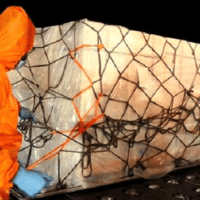
![Photo taken on Dec 8, 2021 shows wind turbines at Changma wind farm in Yumen City, Northwest China's Gansu province. [Photo/Agencies]](https://mronline.org/wp-content/uploads/2021/12/clean-energy-200x200.jpeg)


![[Source: axios.com]](https://mronline.org/wp-content/uploads/2021/12/1628651540505.jpg-copy-200x200.png)
